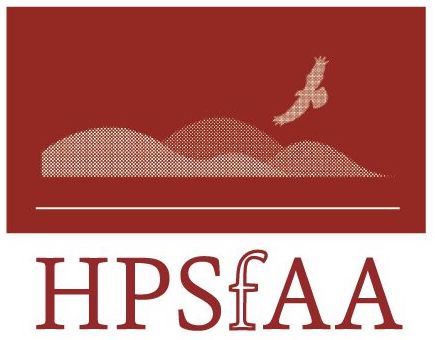2009 Annual Conference: New Approaches to Familiar Issues
by Ben Jewell, Newsletter Editor
The
annual HPSFAA Spring conference, held once again at Metro State
College’s Auraria Campus in Denver, was the first under the direction
of incoming president Kathleen Pickering and signaled not only a
changing of the guards, but a turning point in the history of our
organization. The theme was Development and Sustainability: Recognizing New Resources and Hearing New Voices.
As we approach the 30th anniversary of the beginnings of the HPSFAA, we
witness not so much a shift in issues that are important to us as
social scientists or applied anthropologists, but perhaps the cementing
of our recognition of the importance of incorporating the voices of
those with whom we have spent our careers trying to make more audible.
By
including local people from the communities in which we work, we have
taken an important step towards our stated objectives of disseminating
the body of knowledge accumulated through the application of principles
that explain and improve human relations. Since 2007, the annual Spring
Conference has included presentations from members of the Pine Ridge
and Wounded Knee communities; activists fighting land rights issues in
Native American communities; and this year, Ernest House Jr., executive
secretary for the Colorado commission on Indian affairs and member of
the Ute Mountain Ute Tribe of Colorado.
For
those in attendance at the 2007 conference, the presentation by Walter
Little Moon and Jane Ridgway about the issues facing residents of the
Pine Ridge Indian Reservation was a moving reminder that often the most
articulate statements heard in anthropology are those that come from
the people themselves. This year was no different. Many of the most
memorable ideas and discussions came from people who are not
anthropologists, but have similarly dedicated themselves to
understanding the complexities of the political, social and economic
conditions under which their people live.
Films and Social Change
Not
only did we have the opportunity to hear new voices, but we were also
treated to new methods of delivering those voices. Friday evening was
capped by the presentation of two films about issues facing Native
American communities. Bradley Morse’s film, A Film Dedicated to the Memory of Nicholas Blacksmith,
traces the tragic death of a young Oglala Lakota teenager who was
killed in a collision with an automobile while riding his bike on the
highway near his home. The film details the dangerous conditions under
which Lakota children must navigate their way to and from school
programs, forcing them to utilize a busy two-lane highway with no
shoulder or bike path.
In
the process of making the film, Morse talked to the Blacksmith and
other families and questioned teenagers about their perceptions of bike
safety. The awareness raised by the film and the efforts of local
residents eventually led to the creation of a paved bike path and Morse
has continued to provide voice to local Pine Ridge residents by
assisting them with producing their own films about issues they feel
are important.
The second film of the evening, The Sacred Site of Bear Butte and Development Conflicts,
by Mark St. Pierre and Tilda Long Soldier, focused on the ongoing
battle over preservation of the sacred site of Bear Butte. A site of
spiritual and cultural importance for numerous tribal groups in the
Northern Great Plains, Bear Butte is also a popular tourist destination
for attendees of the annual Sturgis biker rally in South Dakota, which
in turn makes the area a site for potential economic development.
Board Changes
Dr.
Jack Schultz has been elected as the next HPSfAA President, and will
serve the next two years as President-elect. A professor of
anthropology at Metro State College since 1991, Dr. Schultz has had a
long career as a member of the Society and an applied anthropologist.
Dr. Schultz’s research has taken him to Chad and Cameroon while working
for USAID, to West Africa, the Philippines and with nine different
Native American and First Nation communities in the United States and
Canada.
The
board appointed a replacement for the Secretary position after Amanda
Israel’s departure to the West Coast. We want to take this opportunity
to say ‘thank you’ to Amanda for her years of service to the Society as
Secretary and conference organizer, and to wish her all the best in her
future endeavors. Jack Omstead, currently Kathy Pickering’s assistant,
has been selected to replace Amanda as Secretary. Jack graduated Summa
Cum Laude from Metropolitan State College of Denver with a BA in
anthropology and history and has recently been accepted to a teach for
America position beginning this fall at Manual High School where he
will teach 10th graders.
Finally,
Mark St. Pierre has been elected as Member-at-Large. Mark has had a
long career as a community development expert and a college teacher and
has lived and worked in Indian Country for 38 years. A founding member
of the Pine Ridge Area Chamber of Commerce, Mark has successfully
implemented numerous economic development projects at Pine Ridge and
elsewhere, and is currently developing the Cloud Horse Arts Institute
with his wife Tilda Long Soldier. The Cloud Horse Institute teaches
Lakota youth traditional life skills and seeks to preserve traditional
and contemporary Lakota arts, from painting and beadwork to film and
theater.
Best
wishes to all of the incoming board members and a sincere ‘thank-you’
to all who have served as a board member. We look forward to an
exciting year ahead as we mark our 30th year as an organization, and
plot a course for the next 30!









